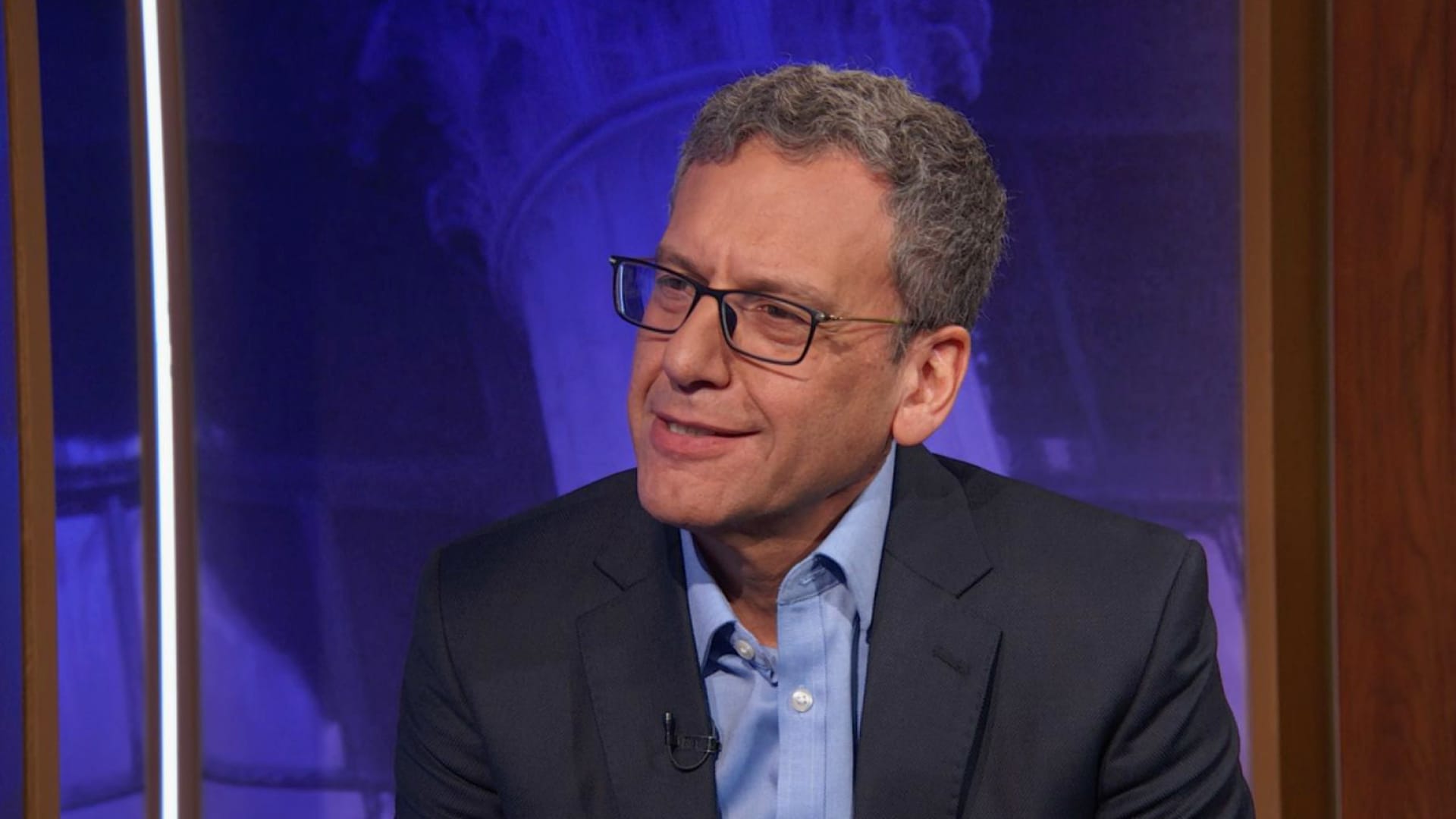Hamid Akhavan, EchoStar CEO, speaking on CNBC’s “Squawk on the Street” on Sept. 30, 2024.
EchoStar is selling its Dish TV provider and digital business Sling to rival provider DirecTV in a deal announced Monday that brings together two of the largest pay-TV providers and sent EchoStar shares plunging 10%.
DirecTV agreed to pay a nominal fee of $1 for Dish. The deal will see DirecTV assume about $9.75 billion in debt and is contingent on consent from some of Dish’s bondholders, according to a news release.
The deal is expected to close in the fourth quarter of 2025. Combined, DirecTV and Dish will serve close to 20 million customers, according to Reuters.
“This was the right time to bring the companies together so we could create a company that ultimately had enough ability to negotiate better deals with the programmers and bring smaller packages to the market, more bite-sized packages, which the consumers are asking for,” EchoStar CEO Hamid Akhavan told CNBC’s “Squawk on the Street” Monday.
“I think this was a scale game that kind of puts us in a level playing field with the competitors in the market,” he said.
The content distribution industry as a whole has been on a major decline, Akhavan said, and distribution companies like Dish and DirecTV have fallen behind other platforms with newer technologies and wider reach.
He also said EchoStar wasn’t able to fully support both its video distribution and core wireless internet businesses, and that this merger will allow the company to put all of its resources towards its core services.
Also on Monday AT&T announced it would sell its entire 70% stake in DirecTV to private equity firm TPG for $7.9 billion. The company sold 30% of its stake to TPG in 2021, then valued at $16.2 billion. AT&T originally bought DirecTV in 2014 for $48.5 billion.
The possibility of a merger between Dish and DirecTV has been rumored for decades. The companies were close to a deal in 2002 in which EchoStar would have acquired DirecTV from General Motors‘ Hughes Electronics, before the Federal Communications Commission shut it down. At the time, EchoStar beat out Rupert Murdoch’s News Corporation in a bidding war for DirecTV.
Since then, the satellite TV industry has taken a number of major hits as consumers moved to streaming services. With a roughly $2 billion debt payment looming and just $521 million in cash and cash equivalents as of June 30, according to public filings, EchoStar was increasingly facing the prospect of bankruptcy. The company recently attempted to refinance some debt, but failed to reach an agreement with bondholders, according to a Sept. 23 filing.
Akhavan said EchoStar has secured enough capital for a bright future, but will not be making many big moves soon as it is still digesting the recent changes. He said the company would prioritize customer acquisition over expanding services.
“We are as competitive as anybody else in terms of our offerings, whether it be price, whether it be coverage, whether it be quality,” he said. — CNBC’s Lillian Rizzo and Alex Sherman and Reuters contributed to this report.
EchoStar’s plan to sell Dish Network to DirecTV, combining two major pay-TV providers in the U.S., is a significant move that could impact the television industry landscape. Here are some thoughts on the acquisition:
1. **Market Consolidation**: The merger reflects the ongoing trend of consolidation in the media and entertainment industry. With so much competition from streaming services, the merger could create a stronger player to compete with major platforms like Netflix, Hulu, and Amazon Prime.
2. **Economies of Scale**: Combining the operations of Dish and DirecTV could result in cost efficiencies and economies of scale. With combined resources and infrastructure, the new company could reduce operating costs, which in turn could benefit customers in the form of better pricing or enhanced service.
3. **Enhanced Service Offerings**: With the two companies merging, there is the potential for enhanced content and service offerings. They could offer more attractive packages with more diverse content, including premium channels and possibly integration with streaming platforms.
4. **Regulatory Challenges**: The merger is likely to face challenges from regulators. There are concerns that consolidation could reduce competition in the market and negatively impact consumer choice. Antitrust regulation could slow down the acquisition process.
5. **Adapting to Market Changes**: The pay-TV market has struggled in recent years with declining subscribers, especially among younger generations who prefer streaming services. This merger could give DirecTV and Dish an opportunity to innovate and adapt to new trends, but they must also consider how to win back customers who have moved to other platforms.
6. **Impact on Customers**: This merger could impact the customer experience. While some customers may benefit from a better offering, others may be concerned about increased prices or decreased customer service due to reduced competition.
Overall, this acquisition has the potential to change the dynamics of the pay-TV industry, with both benefits and challenges that must be managed well to ensure long-term success.
